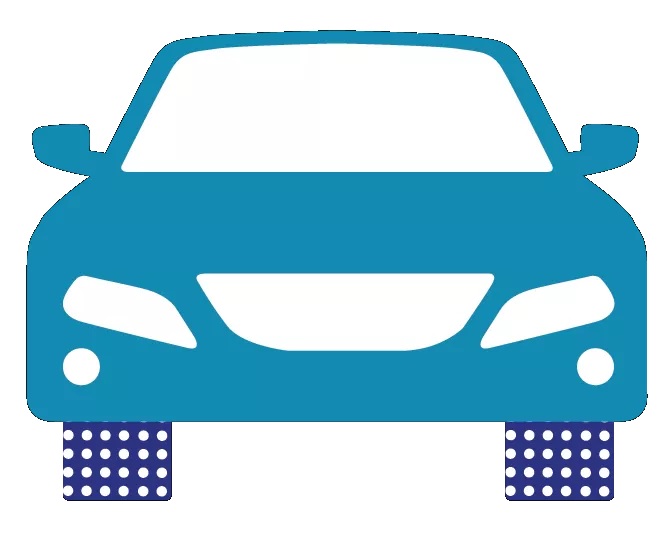Statistics from the SMMT show that car production in the UK hit a 16 year high in June 2016, with nearly 900,000 cars being produced in the six months then ended. The annualised total for the twelve months to 30 June 2016 was nearly 1.7 million cars – which compares very favourably with the just over 1.2 million units produced in the year to 30 June 2010.
Around 169,000 people at present are directly employed in the UK automotive manufacturing sector – which generates nearly £72 billion in sales and just shy of £19 billion added value. The UK sector includes more than 30 manufacturers building in excess of 70 models – supported by more than 2,000 component providing companies.
So what does history tell us?
History shows that a previously buoyant and successful motor industry does not necessarily continue in an uninterrupted upward trajectory. In addition, a global economic shock can play its part in derailing UK car manufacturing.
To assess the potential fragility of the sector at present it is interesting to review the previous highpoint of the UK motor industry – 1972.
In that year the UK had over half a million direct employees that produced 1,921,311 cars. The main manufacturers at that time had all recently introduced new (and ground-breaking) models as follows:
- Ford – The Escort (launch 1967) The Capri (launch 1969) and the Cortina Mk111 (launch 1971);
- Vauxhall – The restyled Viva (launch 1970);
- Hillman – The Avenger (launch 1970);
- Morris – The Marina (launch 1970); and
- Austin – The restyled Maxi (launch 1971).
However by the early 1980s production in the UK had nearly halved to just over one million units and drivers were switching in increasing numbers to foreign motors – particularly the German and Japanese models.
What went wrong?
The 1970’s were a perfect storm of adverse conditions for the UK motor manufacturing industry. Each element represented a specific problem – but the combination of all factors impacting together proved too much for the previously buoyant and successful industry:
a) British Leyland (“BL”) was formed in 1968 from the merger of British Motor Holdings with the Leyland Motor Corporation. This combined the majority of the UKs historic brands – but also led to a cumbersome supply chain (over 40 factories at its peak) plus competing marques and dealership networks.
b) The enlarged BL became an infamous monument to the Industrial Relations turmoil that plagued the UK in the 1970’s. Industrial action by militant shop stewards frequently brought production to a halt so that by 1978 for each day that German manufacturers lost to industrial action – the UK lost ten days.
c) The management team at BL was regarded as complacent and ageing. Lord Stokes (who headed the new conglomerate) was 57 in 1972 – whilst Alec Issigonis (who designed the original Mini) was 66 in that year
d)The foreign competition was becoming fiercer – with VW launching the Golf in 1974. In addition a tide of Japanese imports (spearheaded by Nissan/Datsun and Toyota) exploited the inability of UK manufacturers to satisfy customers – particularly on quality issues.
e) The products (the actual cars manufactured) during the decade were just not very good. A list of the top ten cars sold in the UK during the 1970’s is given below at the end of this article. Anyone under the age of 45 should ask their parents (or grandparents) what was wrong with each specific make and model. Oh – and tell them to take off their nostalgia laminated rose tinted spectacles!
However a key factor in the decline of the industry was the global oil crisis which began in October 1973 when OPEC proclaimed a cut in production and an export embargo in response to Western involvement in the Yom Kippur War between Egypt/Syria and Israel. By the end of the embargo in March 1974 – the price of oil had quadrupled and the UK was in a full blown recession which included the infamous ‘three day week’.
How does that history lesson impact on today?
An unforeseen global shock (the 1973 oil crisis) contributed significantly to the decline of UK car manufacturing. Is it possible that a current unforeseen global shock (the Brexit vote) could contribute to a future decline in that same industry?
The 1970’s sowed the seeds of where the UK motor manufacturing industry finds itself today. We have lost a British owned motor vehicle industry – with the factories and plants currently located in the UK being part of the global supply chains of foreign companies.
The older generation will reminisce about the once proud but now defunct brands such as Austin; Morris; Hillman; Jensen; Rover; Triumph; Humber and the like. However the real worry is that the fundamental decisions on the future of UK car manufacturing will be made in foreign boardrooms.
So what could happen?
At present nearly 80% of cars built in the UK are destined for export (with the EU being the biggest market) and around 60% of components used in manufacture are imported. This makes the position on tariffs, custom charges, other trade barriers and exchange rates critical elements in the future wellbeing of the UK motor industry. Clearly the Brexit vote and subsequent negotiations on the terms of the UK exiting the EU may have a significant impact on these items.
The CEO of Nissan, Carlos Ghosn, has already warned that future investment decisions about their Sunderland plant (which employs around 6,700 workers) will depend on the outcome of the Brexit negotiations between the UK and the EU.
Hopefully common sense will prevail from both sides of the future negotiations and that barrier free trade can continue between the UK and the EU. However if an acceptable deal cannot be done by the politicians – then it is probable that new investment in the UK motor industry will dry up. This will lead to an inevitable decline in the UK car manufacturing industry and falling production numbers.
Don’t think it can’t happen – I’m sure the UK boardrooms of 1972 were equally confident about the future of their industry.
What were the top ten cars sold in the 70’s – in descending order?
The Ford Cortina Mk111 and (from 1976) the MK IV
The Ford Escort Mk1 and (from 1975) the Mk11
The Original Mini
The Morris Marina
The Vauxhall Viva
The BMC 1100/1300
The Austin Allegro
The Ford Capri
The Hillman Avenger
The Austin Maxi
Should you have any questions about this blog, please do not hesitate to contact the author, Mike Carney, or another member of our automotive team. Alternatively, for more of our commentary on key automotive sector issues, visit our automotive industry issues section here.


